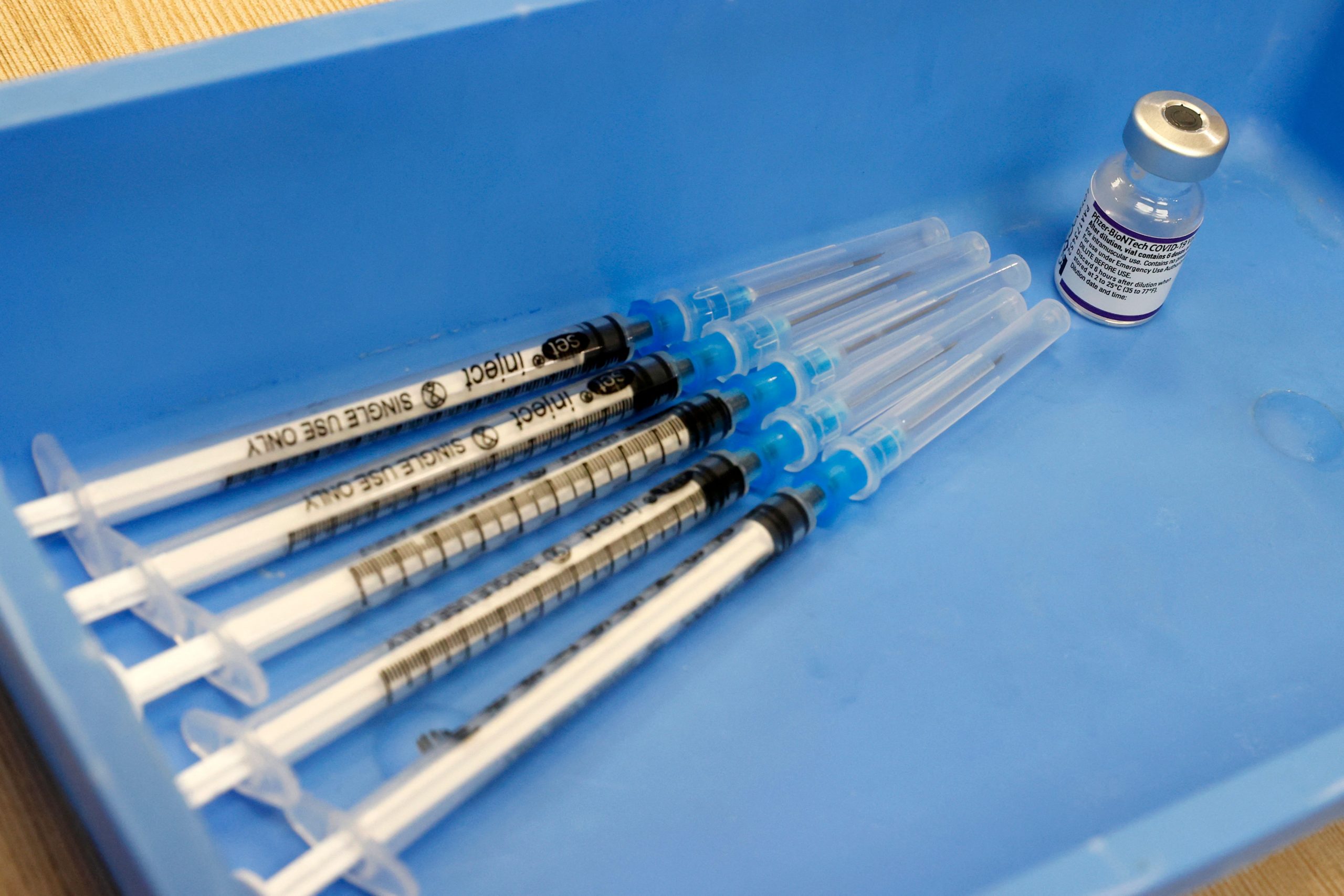Moderna announced on Friday that it is suing Pfizer and its partner, BioNTech, alleging they copied the technology it used to produce the COVID-19 vaccine.
The company said in a news release that Pfizer-BioNTech infringed on its messenger RNA technology patents.
“Moderna believes that Pfizer and BioNTech’s COVID-19 vaccine Comirnaty® infringes patents Moderna filed between 2010 and 2016 covering Moderna’s foundational mRNA technology,” the pharmaceutical firm said.
“This groundbreaking technology was critical to the development of Moderna’s own mRNA COVID-19 vaccine, Spikevax. Pfizer and BioNTech copied this technology, without Moderna’s permission, to make Comirnaty,” it said.
The lawsuits were to be filed in U.S. District Court in Massachusetts, since Moderna is based in Cambridge, and the Regional Court of Düsseldorf in Germany, which is where BioNTech is based, The New York Times reported.
“We believe that Pfizer and BioNTech unlawfully copied Moderna’s inventions, and they have continued to use them without permission,” Moderna Chief Legal Officer Shannon Thyme Klinger said in a statement.
The Times quoted Moderna spokesman Christopher Ridley as saying the company did not have an estimate for the monetary damages it was seeking. According to the U.K.’s Guardian, Pfizer made $37 billion on its COVID vaccine last year alone expected to bring in billions more this year.
“We are filing these lawsuits to protect the innovative mRNA technology platform that we pioneered, invested billions of dollars in creating, and patented during the decade preceding the COVID-19 pandemic,” Moderna CEO Stéphane Bancel said in the company’s news release.
“This foundational platform, which we began building in 2010, along with our patented work on coronaviruses in 2015 and 2016, enabled us to produce a safe and highly effective COVID-19 vaccine in record time after the pandemic struck,” Bancel said.
“As we work to combat health challenges moving forward, Moderna is using our mRNA technology platform to develop medicines that could treat and prevent infectious diseases like influenza and HIV, as well as autoimmune and cardiovascular diseases and rare forms of cancer,” he added.
Pfizer said in a news release of its own that it plans to “vigorously” defend itself against this lawsuit.
“Pfizer/BioNTech has not yet fully reviewed the complaint but we are surprised by the litigation given the Pfizer/BioNTech COVID-19 Vaccine was based on BioNTech’s proprietary mRNA technology and developed by both BioNTech and Pfizer,” Pfizer said in a statement, according to The Hill.
“We remain confident in our intellectual property supporting the Pfizer/BioNTech vaccine and will vigorously defend against the allegations of the lawsuit,” the company added.
But aside from a legal showdown between these two pharmaceutical and biotechnology giants, Moderna’s decision to enforce its patents marks a new stage in the pandemic.
When companies were rushing to produce COVID-19 vaccines two years ago, Moderna said it would not enforce its patents while the pandemic continued.
It explained the shift in its news release Friday.
“Consistent with its commitment to equitable global access, in October 2020, Moderna pledged not to enforce its COVID-19 related patents while the pandemic continued,” the company said.
“In March 2022, when the collective fight against COVID-19 entered a new phase and vaccine supply was no longer a barrier to access in many parts of the world, Moderna updated its pledge.
“It made clear that while it would never enforce its patents for any COVID-19 vaccine used in the 92 low- and middle-income countries in the GAVI COVAX Advance Market Commitment (AMC 92), Moderna expected companies such as Pfizer and BioNTech to respect its intellectual property rights and would consider a commercially reasonable license should they request one for other markets.
“Pfizer and BioNTech have failed to do so.”
Moderna made it clear it was not seeking to remove the Pfizer vaccine from the market and was not seeking damages for “activities occurring before March 8.”
This article appeared originally on The Western Journal.

























 Continue with Google
Continue with Google